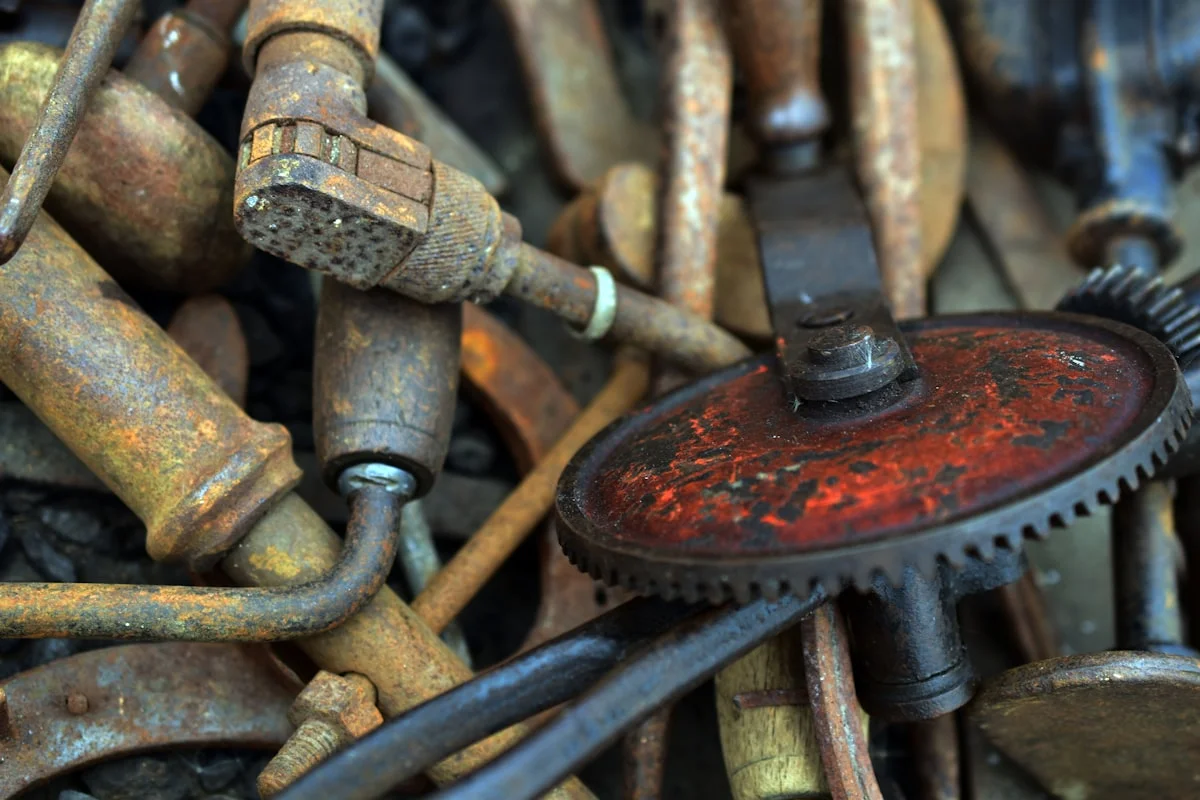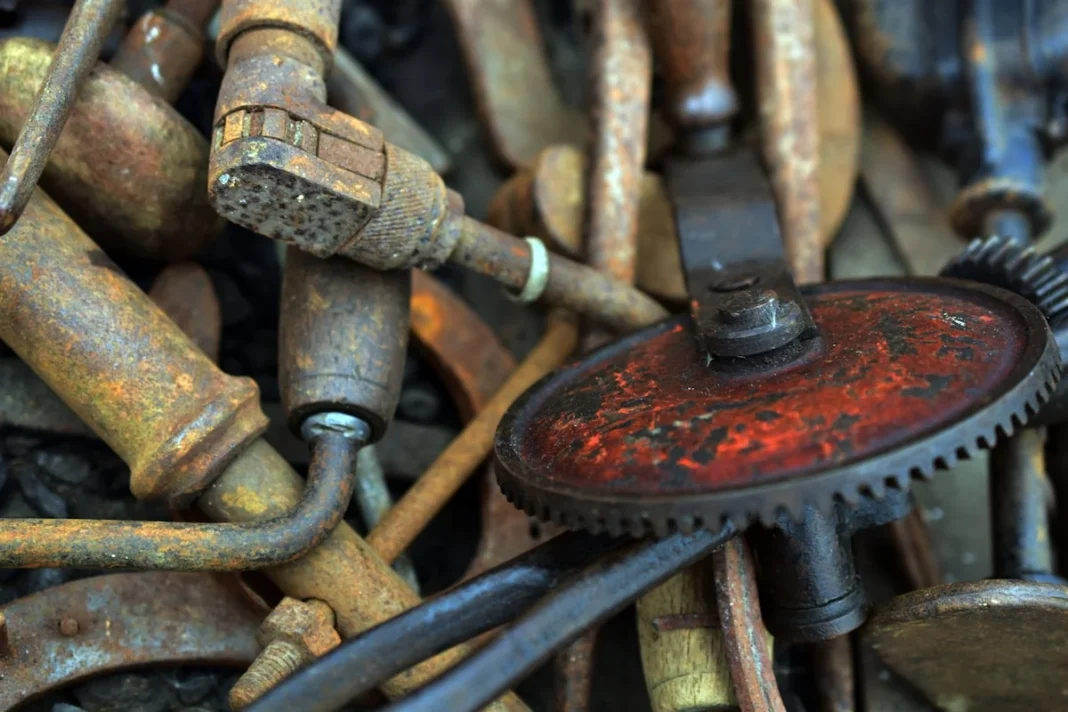How to Remove Rust from Tools Naturally in the USA in 2025
If you’re looking for effective ways to remove rust naturally from your tools, you’ve come to the right place. Many DIY enthusiasts and professionals across the USA prefer natural methods because they are eco-friendly, cost-effective, and safe to use around the home. Learning how to remove rust naturally not only extends the life of your tools but also supports sustainable practices. In this guide, we’ll explore proven techniques that leverage common household items to help you remove rust naturally without harsh chemicals.
Rust can be a persistent problem, especially if you store tools in a garage or shed where moisture is present. Over time, oxidation weakens metal surfaces, making tools less effective and even dangerous to use. While commercial rust removers are widely available, they often contain acids and other chemicals that can be harmful to your health and the environment. Natural methods, on the other hand, utilize ingredients like vinegar, baking soda, and citrus, which are non-toxic and easily accessible. These approaches are not only gentle on your tools but also on your wallet and the planet.
Why Choose Natural Rust Removal Methods?
Opting to remove rust naturally offers several advantages over chemical alternatives. For one, natural solutions are typically safer for you and your family, as they avoid exposure to potentially hazardous substances. Additionally, these methods are often more economical; a bottle of white vinegar or a box of baking soda costs significantly less than specialized rust removal products. Environmentally conscious individuals will appreciate that natural techniques minimize chemical runoff and reduce waste, aligning with a greener lifestyle. From my own experience maintaining tools in a humid climate, I’ve found that natural methods not only work effectively but also prevent future rust when applied consistently.
Another benefit is the versatility of natural rust removers. Many of the ingredients can be found in your kitchen or pantry, meaning you can address rust issues immediately without a trip to the store. This convenience is especially valuable for those living in rural areas or places where hardware stores are not easily accessible. Moreover, natural methods are gentle on metal surfaces, reducing the risk of damage that can occur with abrasive chemical cleaners. Over the years, I’ve restored everything from wrenches to garden shears using these approaches, and the results have been consistently impressive.
Effective Natural Solutions to Remove Rust Naturally
One of the most popular and effective ways to remove rust naturally is using white vinegar. Its acetic acid content breaks down rust without corroding the metal underneath. To use this method, simply submerge your rusty tools in a container filled with white vinegar and let them soak for several hours or overnight. After soaking, scrub the tools with a brush or steel wool to lift away the loosened rust. Rinse thoroughly with water and dry completely to prevent new rust from forming. For tougher rust, you may need to repeat the process or use a higher concentration of vinegar.
Another excellent option is a baking soda paste, which acts as a mild abrasive to scrub away rust. Mix baking soda with a small amount of water to form a thick paste, then apply it generously to the rusty areas of your tools. Let it sit for an hour or two to allow the paste to penetrate the rust. Then, use a brush or cloth to scrub the paste off, taking the rust with it. This method is particularly useful for smaller tools or items with intricate details where soaking isn’t practical. I’ve used this technique on vintage tools with great success, often restoring them to like-new condition.
Citrus-based solutions, such as lemon or lime juice, are also effective for removing rust naturally. The citric acid in these fruits works similarly to vinegar but often with a fresher scent. Squeeze the juice of several lemons or limes into a bowl, enough to cover the rusty parts of your tools, and let them soak for a few hours. After soaking, scrub the tools and rinse well. For added power, you can sprinkle salt on the rust before applying the citrus juice, as the salt acts as an abrasive and enhances the acid’s effect. This method is ideal for lighter rust or for those who prefer a more aromatic approach to tool maintenance.
Preventing Rust Naturally After Removal
Once you’ve successfully managed to remove rust naturally, it’s important to take steps to prevent it from returning. Keeping tools dry is the most critical factor; always wipe them down after use and store them in a dry, well-ventilated area. Applying a thin coat of natural oil, such as mineral oil or even cooking oil, can create a protective barrier against moisture. Simply rub a small amount of oil onto the metal surfaces with a cloth after cleaning and drying your tools. This simple habit can significantly extend the life of your tools and reduce the frequency of rust removal needed.
Another preventive measure is to use silica gel packets or other moisture absorbers in your tool storage areas. These packets are inexpensive and can be placed in toolboxes, drawers, or cabinets to reduce ambient humidity. Additionally, consider storing tools in a way that minimizes contact with other metal objects, as this can accelerate rust formation. From my own practice, I’ve found that combining these strategies—regular oiling and moisture control—has kept my tools rust-free for years, even in challenging environments like coastal regions where salt air accelerates corrosion.
When to Seek Professional Help
While natural methods are highly effective for most light to moderate rust, there may be instances where professional intervention is necessary. If a tool is severely rusted to the point where its structural integrity is compromised, or if it has sentimental or monetary value, consulting a professional restorer might be the best course of action. Professionals have access to advanced techniques and equipment that can salvage heavily damaged items without risking further harm. However, for everyday tool maintenance, natural methods are more than sufficient and should be your first line of defense.
It’s also worth noting that some tools, particularly those with electrical components or precision parts, may require special care. In such cases, attempting to remove rust naturally could inadvertently cause damage if not done correctly. If you’re unsure, refer to the manufacturer’s guidelines or seek advice from a trusted expert. As someone who has worked with tools for decades, I always err on the side of caution with valuable or complex items, but for the vast majority of household tools, natural rust removal is both safe and effective.
Conclusion: Embrace Natural Rust Removal in 2025
In summary, learning how to remove rust naturally is a valuable skill for any tool owner in the USA. Not only are these methods eco-friendly and cost-effective, but they also preserve the integrity of your tools while promoting a healthier home environment. By using simple ingredients like vinegar, baking soda, and citrus, you can tackle rust effectively and prevent its return with minimal effort. As we move into 2025, adopting sustainable practices like natural rust removal will become increasingly important for both personal and planetary well-being.
Remember, consistency is key; regular maintenance and preventive care will keep your tools in top condition for years to come. Whether you’re a seasoned DIYer or just starting out, these natural techniques offer a practical and responsible way to maintain your investment. So next time you spot rust on your favorite wrench or pliers, reach for that bottle of vinegar or box of baking soda—you’ll be amazed at the results.



